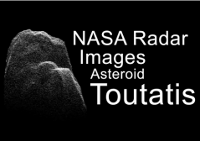
Common Core State Standard
SL.CCS.1/2/3/4 Grades 6-12: An essay of a current news event is provided for discussion to encourage participation, but also inspire the use of evidence to support logical claims using the main ideas of the article. Students must analyze background information provided about a current event within the news, draw out the main ideas and key details, and review different opinions on the issue. Then, students should present their own claims using facts and analysis for support. FOR THE WEEK OF MAR. 25, 2013 They come from space: NASA seeks money to spot and deflect risks from large asteroidsFind another science, technology or engineering article of interest and tell why you picked it or what you learned.
Now look for an example of coverage about any health or safety risk to earthlings, even if less dramatic than a giant asteroid.
Focusing back on Congress, see if you can spot a report about another hearing or spending debate that raises tricky policy questions. List a few reasons why you would or wouldn't want to be a Senate or House member.
Ominous discussions in Congress last week only sounded like science fiction. The talk about lasers and asteroids heading toward Earth was factual, though one online news report calls it "the most surreal and amazing congressional hearing ever to take place." NASA officials told House and Senate committees that more money is needed for powerful telescopes to spot giant asteroids that could hit our planet and for lasers that could knock threats off-course. Right now, scientists say, 90 percent of the asteroids that could strike Earth are still undiscovered. NASA is part of a global network of telescopes on the ground and in space that spot, track and analyze asteroids and comets passing nearby. A U.S. program called "Spaceguard" calculates their size and orbits to determine if any could be hazards. But without many years of warning, experts add, there's no way to stop an asteroid on a collision course Lawmakers held the hearings a little more than a month after two rare events took place on Feb. 15. A small asteroid passed within 17,000 miles of Earth and a meteor with a 56-foot estimated diameter exploded over Russia, injuring more than 1,000 people and bringing the risks of future incidents into clearer focus. While NASA Administrator Charles Bolden says cuts in funding to monitor and detect space rocks could have devastating consequences, though he acknowledges there's just an "extremely remote" chance a mega-asteroid will strike in the next100 years.
Front Page Talking Points is written by
Alan Stamm for NIEonline.com, Copyright 2024
Front Page Talking Points Archive►Fierce hurricanes last week and last month show how warmer seas can affect us, scientists say ►'Code red time:' Israel reacts forcefully in Lebanon and Gaza, stirring fear of wider war ►'All pain, no gain:' School homework is focus of new attention on a longtime practice ►Sweeping overhaul of Instagram aims at making it safer for users under 18 ►Another intense wildfire season in California is linked to climate change, experts say ►U.S. presidential rivals Harris and Trump debate in Pennsylvania on Tuesday ►Tech refreshes for a new school year: Digital notebook, memory storage, power banks and more ►For skilled players, tossing beanbags can be a path to college and pro-level paydays |

